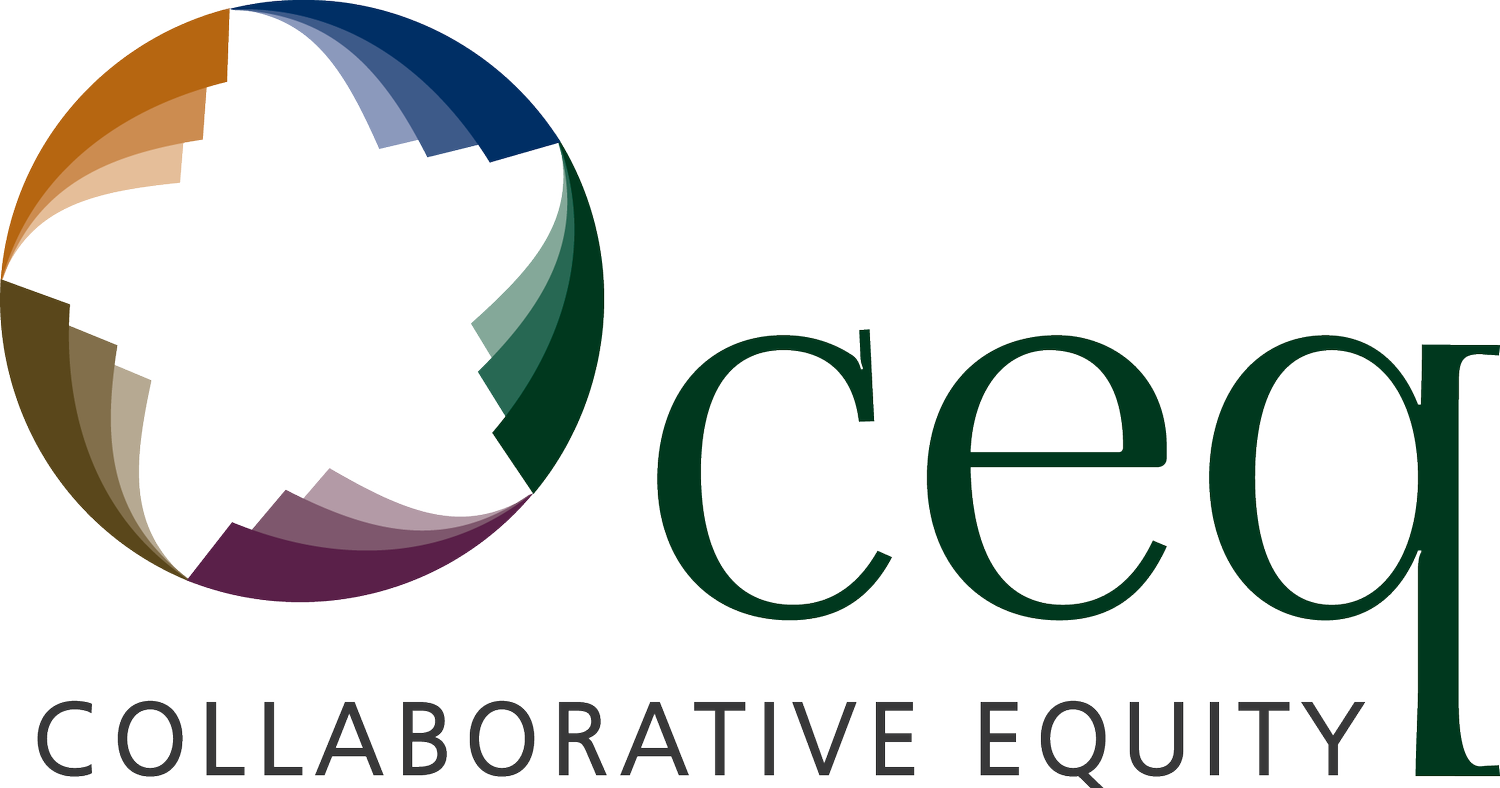What is “Collaborative Equity”? - Gareth Chick
/I created the term ‘Collaborative Equity’ as the brand for my style of organization. ‘Collaborative’ to stand for the encouragement of a truly collective learning, innovating, growing and thriving, and for the eradication of the aggression from competition. And ‘Equity’ to stand for the inclusion and the equality of responsibility and rewards for every stakeholder. Collaborative Equity is also conveniently shortened to the acronym CEQ, the same acronym I use to denote Corporate Emotional Intelligence. So I’m really making it as easy as possible here – all you have to do is remember CEQ, and remember it stands for both the emotional and rational solutions to our problems.
A Collaborative Equity organization is one of shared ownership, shared responsibility and shared reward…
Shared Ownership
Is an emotional state, not a financial or legal one. In a listed business, the owners are the shareholders and so it will remain. Of course we can tinker with share option schemes, LTIPs for the senior execs and share save type schemes for the employees, but these are just technical devices seeking to link the way managers and employees are motivated to some notion of medium term rise in the share price. Many of these schemes are laudible but flawed. If the stock market was a sound medium term arbiter of company performance then they might just work, but with such high degrees of speculative activity skewing values, they are notoriously unreliable. I have no issue with the separation of investment and employment, but I am heavily in favour of employees being generously rewarded for their daily efforts, with the ‘bonus’ of some capital reward for long term contribution. In our materialistic society we have become obsessed with ownership of things as an emotional crutch, but in working for an organization that we believe in, and in feeling attached to the purpose and the outcomes, we can transcend the material substitutes and feel the human rewards of connection.
Shared responsibility
Is that Nirvana cultural state whereby every employee is working the plan to achieve the purpose and objectives, using all their potential, creativity and humanity. Yes there will be designated leaders and maybe even an inevitable hierarchy of authority to organize scarce resources, but fundamentally every single employee will gladly and freely take personal responsibility for achieving the Plan. So leaders need to work hard to create a culture whereby every individual is willing, even desperate, to take personal responsibility for their area and for the collaboration across functions that will deliver outstanding results.
Shared reward
Means that every individual feels appropriately rewarded for their part. The market for talent will dictate that some earn more than others, but it is the secrecy around this dynamic that most upsets people. While a situation whereby a CEO might earn 200x the rate of their average employee can be defended according to the ‘market’, it is surely both unethical and unsustainable. Unethical in the sense that one individual cannot be worth 200x another, and if they are then the organization is overly reliant on one-off deals as opposed to having a compelling sustainable operating model earning a justifiable margin from its place in the supply chain. And unsustainable in the sense that this dramatically skewed dynamic automatically breeds the hubris and damaging power, control and invulnerability in the leaders. If I earn 200x what you earn, how can I legitimately come to you and ask you what you think?
Stakeholders are as follows, together with a simple statement of each group is rewarded:
Employees (rewarded by long term job security, salary and a share of surplus)
Leaders (rewarded by professional challenge, salary and a share of surplus)
Suppliers (rewarded by long term partnership security and growth)
Customers (rewarded with the highest quality products and services)
Investors (rewarded by a reasonable and stable return on their investment in the form of interest or dividends, and a share of surplus)
Community (rewarded by regulated payments and taxes, and net positive impact)
Environment (rewarded by total supply chain net positive)
A Collaborative Equity organisation takes the development of strategy, client relationships, products and product life cycles and brands, people and talent, and environmental concerns as the basis for business planning and guiding management focus and prioritisation
A Collaborative Equity organisation is one where the people who gain from the success of the venture are the stakeholders who are truly invested – those 7 stakeholder groups for whom the sustainability of the endeavour is paramount in their lives; the employees, the leaders, the suppliers, the long term investors, the customers, the local community and the environment.



